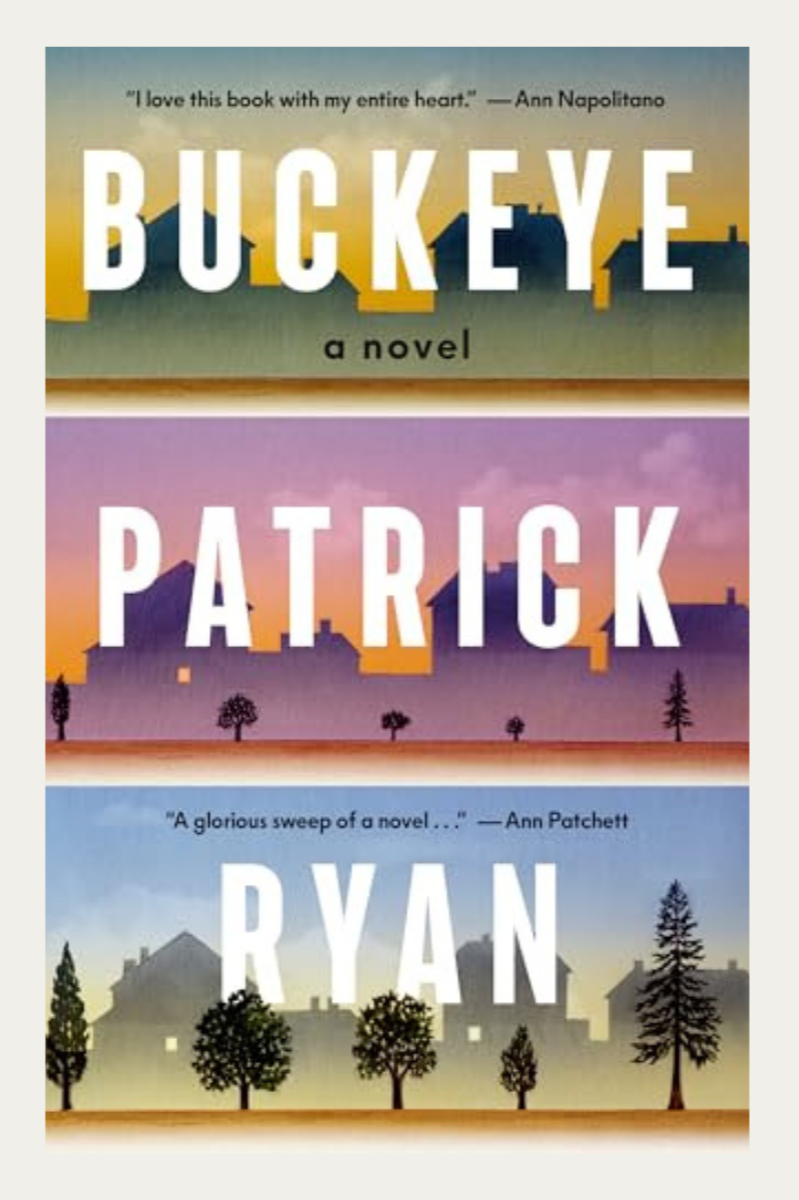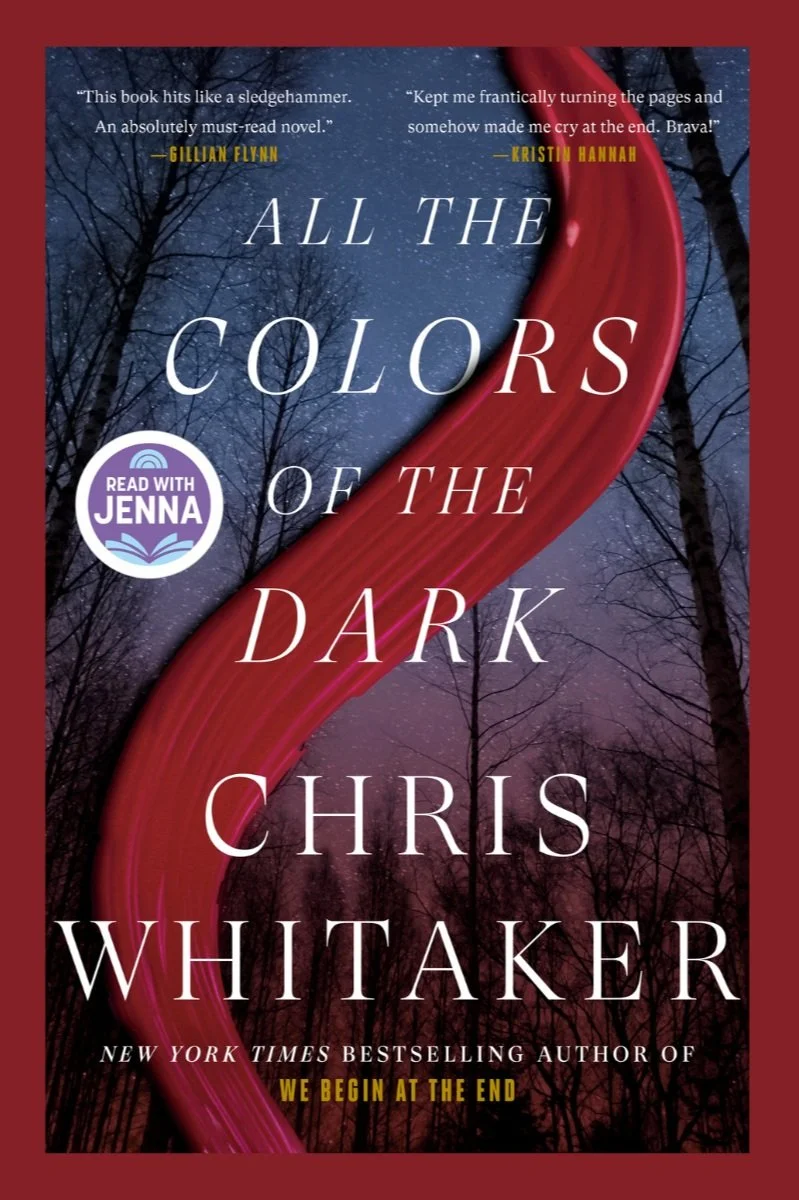A tender, character-driven novel about marriages, secrets and small-town lives—sweeping yet intimate, and one of my standout reads of 2025.
All tagged midwest
Say You’ll Remember Me – Abby Jimenez
“Say You’ll Remember Me” didn’t reinvent the genre, yet it respected it. In doing so, it chipped away at my resistance. I still have reservations about the formula, but I understand the appeal. And yes, I’ll read the next one in this series.
Never Flinch – Stephen King
Stephen King still knows how to tell a pulse-pounding story, but if he wants to keep his cultural edge sharp, he needs to start asking harder questions about who gets to be the hero – and who keeps getting cast as the victim and the threat.
A Fortune for Your Disaster – Hanif Abdurraqib
If you're newer to poetry, this is a great entry point. There's enough cultural reference and narrative grounding to make you feel like you’re “getting it,” even if some symbolism is out of reach.
Show Don’t Tell – Curtis Sittenfeld
Even the weaker stories carry flashes of what makes Sittenfeld compelling: the sly observation, the perfect turn of phrase, the ability to make a character feel ridiculous and real in equal measure. This is objectively not a bad book, it’s just not Sittenfeld at her best.
The Monsters We Make – Kali White
To White’s credit, she doesn’t sensationalize the crimes. But she also doesn’t probe their emotional or societal aftermath in a meaningful way. For a book so rooted in real trauma, it feels oddly detached. If you’re deeply immersed in this genre or invested in Iowa true crime, it’s a decent diversion. For anyone seeking nuance, emotional insight or literary ambition, it falls short.
They Can’t Kill Us Until They Kill Us – Hanif Abdurraqib
Ultimately, this collection serves as both a time capsule and a stepping stone in Abdurraqib’s evolution as a writer. It lacks the full polish of his later work, but the rawness and energy make it an essential read for those who appreciate music, culture and the ever-shifting landscape of America.
A Forty Year Kiss – Nickolas Butler
While the romance at times veers into saccharine territory – declarations of love come frequently, and some gestures, like the grand finale at Wrigley Field, feel cinematic to a fault – it is counterbalanced with an exploration of what it means to forgive, even if forgetting is not an option.
The Continental Divide: Stories – Bob Johnson
As a debut, “The Continental Divide” is grim, bold and occasionally brilliant. Johnson knows how to build tension and tap into the slow, often quiet desperation of a life that feels like it’s going nowhere. He’s not reinventing the short story but proving he belongs in the conversation.
Forty Acres Deep – Michael Perry
Michael Perry’s “Forty Acres Deep” may be short, but it carries the emotional weight of a full-length novel in its 130-pages. Here, the author explores heavy topics: loss, survival and the quiet erosion of a way of life. It’s a book that operates on multiple levels – an intimate character study, a eulogy for small-scale farming and an unflinching look at the toll of solitude.
Isaac’s Song – Daniel Black
Daniel Black’s “Isaac’s Song” is less a sequel to “Don’t Cry for Me” than a companion piece, giving Isaac’s long-awaited perspective on his relationship with his father, Jacob. While “Cry” was a reckoning told through a dying father’s letters, “Song” is a son’s introspective journey through memory, contradiction and generational trauma.
Small Rain – Garth Greenwell
Garth Greenwell’s “Small Rain” explores the isolation and unraveling of self that so many of us endured during the first COVID-19 summer. His unnamed protagonist experiences this in a way that’s magnified tenfold, as he is confined to a hospital room with a potentially fatal diagnosis: an aortic dissection. The fact he survived such low odds and remains coherent adds an underlying tension to every encounter. He is suspended in a liminal state, living on what feels like borrowed time.
Don’t Forget the Girl – Rebecca McKanna
At first glance, Rebecca McKanna’s “Don’t Forget the Girl” may seem like another mystery thriller critiquing true crime culture – and to an extent, it is – but it stands out with its sharp edges and an unexpectedly poignant queer love story. This adds depth, transforming what could have been a straightforward thriller into something more personal and thought-provoking.
Beneath the Bonfire – Nickolas Butler
While the author primarily focuses on the experiences of straight white men, his narratives transcend the typical masculine tropes. With raw emotional honesty, he taps into the inner workings of the male psyche, examining the impact of toxic masculinity, friendship, fatherhood, trauma, loss, identity and nature on the common man.
All the Colors of the Dark – Chris Whitaker
“All the Colors of the Dark” is a sprawling novel that tries to do too much and ends up delivering very little. At best, it's aggressively mediocre, and at worst, it's a contrived and overly familiar story built on tropes.
My Friend Dahmer – Derf Backderf
While the graphic novel was initially intriguing, it felt a bit lacking in depth, particularly considering its length. I also began to question the necessity of Backderf telling this story. He was only a passing acquaintance of Dahmer, so the armchair psychology and hindsight observations felt a tad inflated.
Stoner – John Williams
Named “the greatest American novel you’ve never heard of” by The New Yorker, John Williams’ “Stoner'' certainly earns that distinction with a simple, beautifully woven story about a Midwestern English professor living a remarkably unremarkable life.
Ducks, Newburyport – Lucy Ellmann
Expectation: A unique journey into the mind of a Midwest housewife and baker.
Reality: A 1,000+ page run on sentence with no plot, or seemingly, purpose outside of threading random topics together.
The Adventures of Huckleberry Finn – Mark Twain
Expectation: To be wowed by this stalwart of American literature.
Reality: A bit let down, and not just because of the terrible racism. Essentially this is a story of vignettes with a very loose plot.
Kent State: Four Dead in Ohio – Derf Backderf
Derf Backderf's "Kent State: Four Dead in Ohio" takes readers beyond the iconic photograph, offering a meticulously researched and haunting graphic novel about the events that occurred on May 4, 1970, between students at Kent State University and the Ohio National Guard.



















